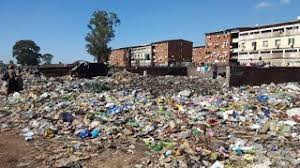
AN influx of cheap generic drugs, particularly from China and India, is threatening the viability of Zimbabwe’s pharmaceutical industry, the Independent has learnt.
The situation has been worsened by steep duties imposed on critical raw materials required to manufacture essential drugs.
Subsequently, the cost of producing drugs locally has increased, with manufacturers charging consumers steep prices.
Coupled with that, some manufacturers have set up plants in foreign jurisdictions while exporting their products to the local market.
Local pharmaceutical companies are not fully equipped to meet the country's needs, while some have closed due to a myriad of challenges.
On the sidelines of the ongoing “In Conversation with Trevor Ideas Festival” in Nyanga, veteran surgeon and pastor Matthew Wazara told the Independent that although generic drugs have helped lower medicine prices globally, Zimbabwe’s tax structure has unintentionally made local production uncompetitive.
He explained that while finished medical products are largely exempt from import duty — the raw materials needed to manufacture those same medicines inside Zimbabwe are still taxed.
“If a local company wants to make something as basic as paracetamol, it must import the raw materials.
- The brains behind Matavire’s immortalisation
- Zim’s poor batting hands India series
- Proposed raids on grain farmers raises stink
- Red Cross work remembered
Keep Reading
“Some of those raw materials, such as starch, attract duty. So by the time the company pays duty and manufactures the product, it ends up costing more than the imported one,” Wazara said.
He noted pharmaceutical manufacturers, mostly from Asia, are producing high quality generic medicines at scale, allowing them to sell at low cost.
“But we have Indian companies that have emerged, Chinese companies, Dutch companies that are really good at making what are called generic drugs,” he said.
“So, there are drugs that do not carry a specific label for a company, for example paracetamol.”
Meanwhile, Zimbabwean firms with proven capacity to produce lines of medicines are being pushed out of the market simply because their production costs are higher.
“The foreign manufacturer is not paying duty for their starch because they are making the raw material there. They bring in the finished products here duty-free. There is no competition.”
Wazara said this mismatch has already driven some Zimbabwean pharmaceutical companies to relocate parts of their production to neighbouring countries.











